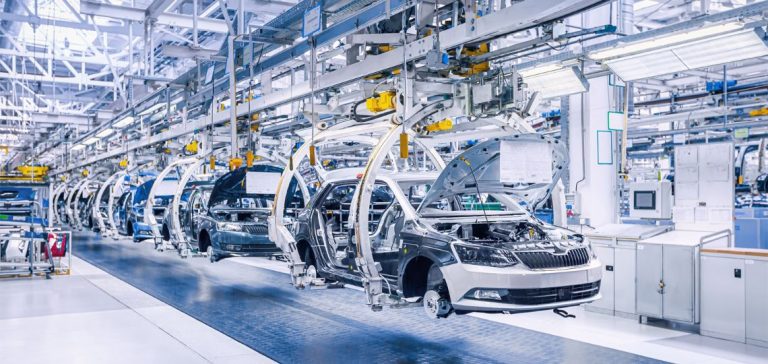The automotive industry in the United Kingdom is facing significant challenges in meeting the government’s 2024 electric vehicle sales targets. In an open letter, industry leaders express their concerns about the feasibility of the imposed targets and seek government assistance to ensure compliance and maintain market competitiveness.
Leaders of the sector association SMMT (Society of Motor Manufacturers and Traders) emphasized that despite an increase in sales volumes, the market share of electric vehicles remains stagnant. According to the letter signed by more than a dozen heads of British subsidiaries of major manufacturers such as Stellantis, BMW, Volkswagen, Ford, and Nissan, the total electric vehicle sales will reach only 18.5% by the end of the year, below the required 22%.
Challenges of Government Targets
The annual targets, established by the previous Conservative government, mandate that 22% of each brand’s new car sales be zero-emission vehicles in 2024. However, SMMT believes these targets are too stringent given the current market conditions. They noted that even though September recorded a record number of electric vehicle registrations, this was achieved through massive discounts by manufacturers, thereby compromising profitability and long-term viability.
Furthermore, the new Labour government, elected in July, has announced an advancement of the ban on the sale of petrol and diesel cars to 2030, instead of 2035 as planned by the previous Conservative government. This decision adds additional pressure on British manufacturers, who now need to adjust their strategies to meet tighter deadlines.
Economic Consequences and Calls for Assistance
Facing these challenges, manufacturers warn of potential repercussions on investment, research and development, and employment in the automotive sector. They mention the possibility of reduced investments and innovation capacity, which could harm the United Kingdom’s competitiveness in the global electric vehicle market.
Ahead of the Labour government’s first budget on October 30, the automotive sector is calling on Finance Minister Rachel Reeves to consider fiscal incentives. Among the proposals are a reduction in VAT on the purchase of new electric cars by individuals and on public charging stations, aiming to stimulate demand and facilitate the adoption of electric vehicles.
Government Reactions and Sector Perspectives
The government declined to comment on speculations regarding possible tax cuts before the official budget presentation. However, manufacturers insist that the current targets are based on optimistic assumptions, such as stable economic growth, abundant raw materials, cheap energy, and increasing demand for electric vehicles.
Despite these challenges, Colin Walker, head of transport at the Energy and Climate Intelligence Unit (ECIU) think tank, emphasizes that never before have so many electric vehicles been sold in a single month, demonstrating that demand exists and that efforts to translate this demand into sales are paying off. He adds that investments in charging infrastructure and green technologies are essential to maintain this positive momentum.
Future Perspectives and Recommendations
To achieve the set targets, experts recommend close collaboration between the government and the automotive industry. This includes not only fiscal incentives but also increased support for research and development of advanced battery technologies and charging infrastructures. Additionally, a reevaluation of the targets based on market realities could allow for a smoother transition to sustainable mobility without compromising the sector’s economic stability.






















